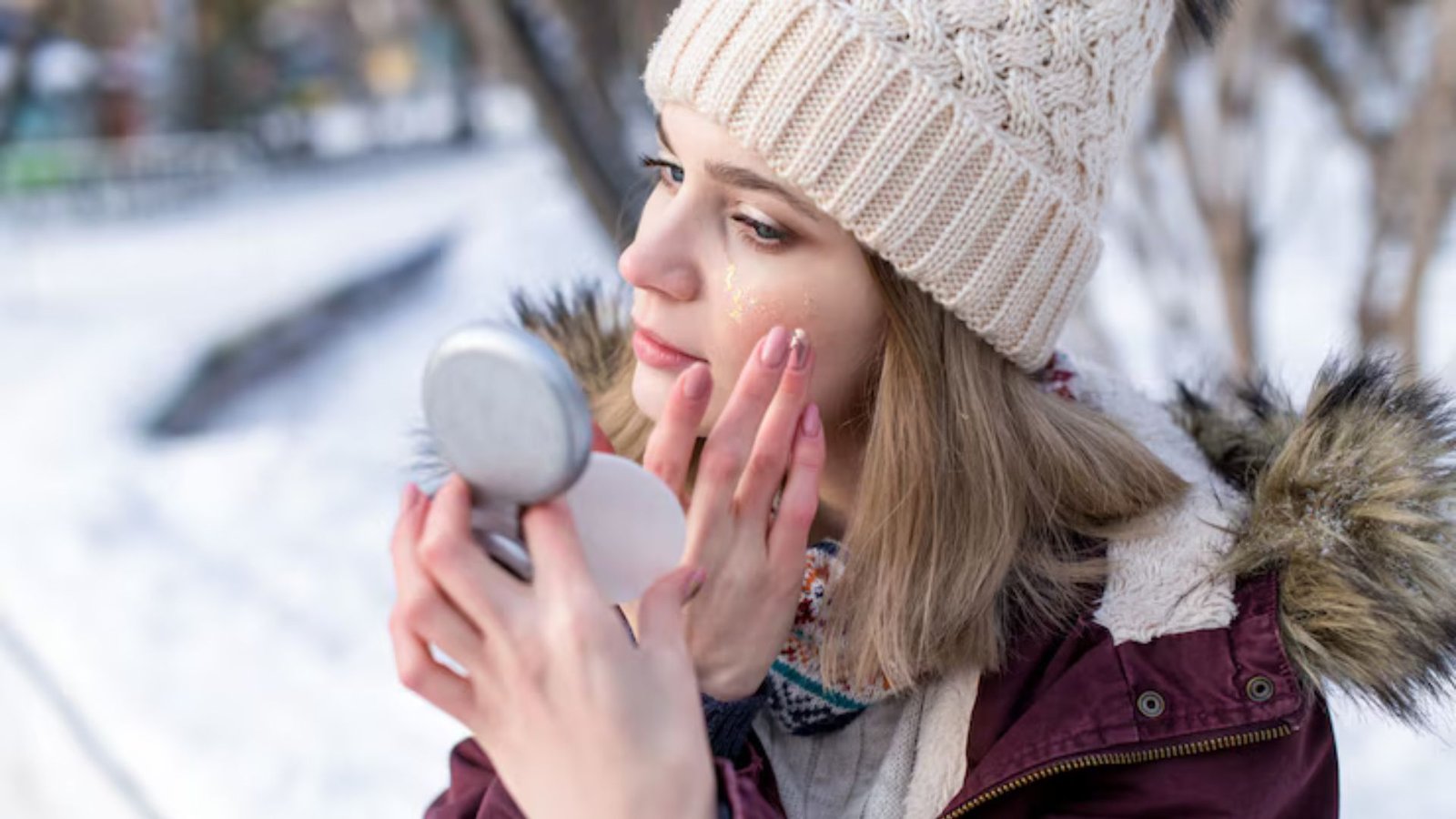Winter weather brings a unique set of challenges to our skin. With the drop in temperatures, increased indoor heating, and lower humidity levels, the skin often faces dryness, irritation, and sensitivity. To maintain healthy skin during winter, it’s crucial to adopt a skincare routine that protects, hydrates, and nourishes your skin through these harsh conditions.
In this article, we’ll explore practical and effective ways to maintain healthy skin during winter, helping you prevent the discomforts of dry skin while keeping your complexion smooth and radiant.
Why Winter Affects Your Skin
During the colder months, the environment can strip the skin of its natural moisture. Dry indoor air caused by heaters, frigid outdoor temperatures, and harsh winds can all contribute to skin dehydration, which can lead to flakiness, redness, and cracking.
The outer layer of the skin (epidermis) relies on moisture to maintain its barrier function, and when exposed to these winter conditions, it becomes weakened. This can lead to increased sensitivity, irritation, and even conditions like eczema or psoriasis. By understanding these challenges, you can take proactive steps to protect and care for your skin during the winter season.
Keep Skin Hydrated
One of the most important aspects of maintaining healthy skin during winter is proper hydration. When temperatures drop, your skin loses moisture more rapidly. To counteract this, it’s essential to replenish hydration both topically and internally.
Drink Plenty of Water
Staying hydrated is important all year round, but in winter, it’s easy to forget about water intake when we don’t feel as thirsty. Drinking water helps maintain your skin’s elasticity, keeping it from becoming dry and flaky.
Use Hydrating Skincare Products
Look for moisturizers and serums that contain hydrating ingredients such as hyaluronic acid, glycerin, and ceramides. These ingredients help lock in moisture and form a protective barrier against the elements. Apply these products regularly, especially after showering or washing your face, to keep skin soft and supple.
Opt for a Humidifier
Indoor heating can cause the air in your home to become excessively dry, further contributing to skin dehydration. Using a humidifier helps maintain optimal moisture levels in the air, reducing the risk of your skin becoming dry and irritated. A humidifier can also be particularly helpful during sleep, keeping your skin hydrated throughout the night.
Switch to a Gentle Cleanser
During winter, you may notice that your usual face cleanser isn’t providing the same comfort it did in warmer months. Harsh soaps or cleansers that strip the skin of oils can exacerbate dryness. To maintain healthy skin during winter, switch to a gentler, more hydrating cleanser.
Avoid Hot Water
Although it’s tempting to indulge in hot showers when the weather is cold, hot water can actually strip your skin of its natural oils. Use lukewarm water to cleanse your face and body, which will help prevent further dehydration.
Choose Non-Foaming, Cream-Based Cleansers
Look for a mild, non-foaming cleanser or one with creamy consistency that doesn’t leave your skin feeling tight or dry. These cleansers help maintain the skin’s natural moisture levels and cleanse without irritating.
Exfoliate, But Don’t Overdo It
Exfoliating is essential for removing dead skin cells that can build up during winter and contribute to a dull complexion. However, over-exfoliating can lead to irritation and further dryness.
Use Gentle Exfoliants
Choose exfoliants that are gentle on the skin and avoid harsh physical scrubs. Chemical exfoliants containing AHA or BHA (such as lactic acid or salicylic acid) can be less abrasive and more effective in breaking down dead skin cells without causing harm.
Exfoliate Less Frequently
Instead of exfoliating every day, consider exfoliating once or twice a week during the winter. This frequency will help maintain a healthy skin turnover without compromising your skin’s moisture barrier.
Protect Your Skin from Harsh Elements
Winter brings cold winds, snow, and rain—all of which can irritate and damage the skin. Proper protection is essential to maintain healthy skin during winter.
Use SPF Daily
Yes, even in winter, sunscreen is a must. UVA rays can penetrate through clouds and still cause long-term damage to your skin. Apply a broad-spectrum SPF of at least 30 every day, even if you’re indoors. If you’re going outdoors for extended periods, consider using a higher SPF and reapplying every two hours.
Cover Up with Clothing
When you’re exposed to cold winds, wear scarves, gloves, and hats to shield your skin. If you’re outside for long periods, protective clothing can prevent windburn and skin irritation. Opt for natural, breathable fabrics like cotton or wool that are gentle on the skin.
Choose the Right Moisturizer
Your skin’s moisturizing needs can change with the seasons. During winter, a richer, more nourishing moisturizer is often required to combat the dry conditions.
Look for Occlusive Ingredients
In winter, opt for thicker creams or lotions that contain occlusive ingredients like petrolatum, shea butter, and beeswax. These ingredients help seal in moisture and form a barrier against the elements.
Night Creams for Extra Hydration
Consider using a richer night cream that deeply hydrates and repairs the skin overnight. Ingredients like retinol or peptides can help with skin regeneration, while nourishing oils like jojoba or argan oil provide an extra moisture boost.
Maintain Healthy Diet
What you eat plays a significant role in how your skin looks and feels. Eating a balanced diet rich in vitamins and antioxidants can promote healthy skin and help combat the harsh effects of winter weather.
Omega-3 Fatty Acids
Incorporating foods high in omega-3 fatty acids, such as salmon, walnuts, and flaxseeds, can help keep your skin hydrated and reduce inflammation.
Vitamin C and E
Vitamin C helps in collagen production and skin repair, while Vitamin E is known for its ability to protect and nourish the skin. Fruits, vegetables, and nuts are excellent sources of these essential nutrients.
Avoid Hot Showers
While it may feel nice to take a hot shower during the winter months, hot water can strip your skin of its natural oils, leaving it feeling dry and tight. To maintain healthy skin during winter, try taking lukewarm showers instead.
Shower Time Matters
Keep your showers short, as prolonged exposure to water can further dry out your skin. Once you step out, immediately apply a moisturizer to help lock in moisture while your skin is still damp.
Take Care of Your Hands and Feet
Hands and feet are often the most neglected parts of the body when it comes to winter skincare, but they can also suffer the most from the cold weather.
Hand Cream
Constant handwashing, especially during winter, can leave your hands dry and cracked. Keep a rich hand cream in your bag or on your desk to apply frequently throughout the day. Look for creams containing shea butter or glycerin to provide lasting hydration.
Foot Care
For your feet, exfoliate regularly to remove rough skin, then follow up with a rich foot cream. Don’t forget to wear socks made of breathable material to help prevent moisture loss and cracking.
Conclusion
Maintaining healthy skin during winter requires a thoughtful approach that addresses hydration, protection, and nourishment. By drinking plenty of water, using gentle cleansers, applying rich moisturizers, and protecting your skin from the elements, you can keep your skin soft, supple, and radiant despite the harsh conditions.
ALSO READ:What Is The Best Exercise for Weight Loss? Top Workouts for Effective Fat Burn
FAQs
How often should I moisturize my skin in winter?
In winter, you should moisturize your skin at least twice a day—once in the morning and once before bed. You may also need to reapply during the day, especially after washing your hands or face.
Can cold weather cause acne?
Cold weather itself doesn’t cause acne, but dry skin can lead to increased oil production, which might contribute to breakouts. Make sure to moisturize to avoid dry skin and manage any acne flare-ups.
What is the best type of moisturizer for winter?
The best moisturizers for winter are those that contain occlusive ingredients like shea butter, glycerin, or petroleum jelly. These create a barrier to lock in moisture and protect the skin from harsh elements.
Should I still use sunscreen in winter?
Yes, sunscreen should be used year-round. UVA rays can penetrate through clouds and cause skin damage, even in winter. Apply a broad-spectrum sunscreen with SPF 30 or higher daily.
Is it safe to exfoliate during winter?
Exfoliating in winter is important, but it’s crucial to avoid overdoing it. Exfoliate once or twice a week using gentle chemical exfoliants, and avoid harsh scrubs to prevent irritation and dryness.

